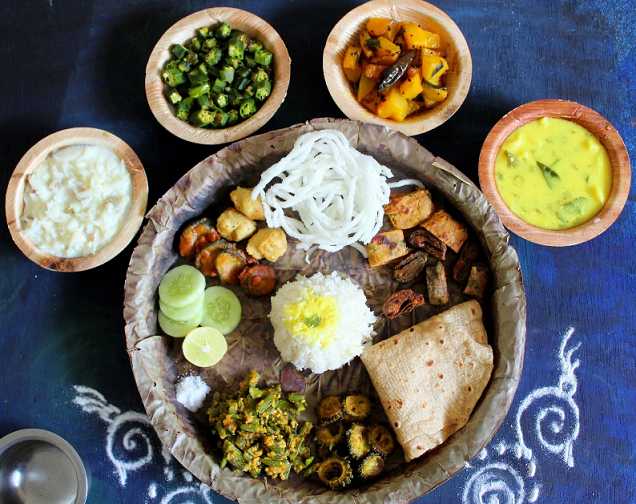Significance of Offering Food to Ancestors
Offering food to ancestors, a practice commonly observed during Pitru Paksha and other ancestral rituals in Hindu tradition, holds profound significance. This act of offering food, known as “Tarpana” or “Shraddha,” symbolizes a sacred and symbolic gesture with several layers of meaning and importance:
- Nourishing the Departed Souls:
- The primary significance of offering food to ancestors is to provide nourishment to the departed souls. It is believed that the souls of the deceased ancestors return to the earthly realm during Pitru Paksha.
- The offerings are a way of ensuring that these souls receive sustenance and blessings, which can help them progress in their spiritual journey in the afterlife.
- Expressing Gratitude:
- Offering food to ancestors is a profound expression of gratitude and respect. It is a way for descendants to acknowledge the contributions, love, and sacrifices made by their forebears.
- By sharing a meal with ancestors, families express their thankfulness for the lineage that has shaped their lives.
- Resolving Ancestral Karma:
- In Hinduism, it is believed that the karma (the accumulated actions and consequences) of ancestors can affect the living descendants. Offering food during Pitru Paksha is seen as a means of mitigating any negative karma carried by the departed souls.
- This practice is considered a form of spiritual service, aimed at helping ancestors find peace and liberation from karmic burdens.
- Seeking Ancestral Blessings:
- The offerings made during Tarpana are accompanied by prayers and mantras seeking blessings from the ancestors. Descendants ask for the guidance, protection, and benevolence of their forebears.
- It is believed that the blessings of ancestors can influence the well-being, prosperity, and success of the living family members.
- Fostering Family Unity:
- Preparing and sharing the offerings with family members is a unifying act. It brings together different generations and reinforces family bonds.
- The act of collectively participating in ancestral rituals fosters a sense of togetherness and shared responsibility.
- Cultural and Religious Identity:
- Offering food to ancestors is an integral part of Hindu culture and religious identity. It upholds age-old traditions and rituals, ensuring their continuity and preservation.
- This practice reinforces the cultural and religious identity of the family and community.
- Teaching Moral and Ethical Values:
- In the context of Pitru Paksha, offering food to ancestors also serves as a teaching tool for passing on moral and ethical values. It reinforces the importance of honoring one’s ancestors, respecting elders, and fulfilling one’s familial duties.
- Ceremony of Remembering:
- The act of offering food becomes a ceremony of remembering and reconnecting with one’s roots. It involves storytelling and sharing memories about ancestors, keeping their legacy alive.
- Environmental Consciousness:
- In contemporary times, there is a growing awareness of the environment. Some families opt for eco-friendly materials for offerings, aligning the practice with environmental consciousness.
Offering food to ancestors during Pitru Paksha is a multifaceted ritual that embodies spiritual, emotional, and cultural significance. It bridges the gap between the living and the deceased, reinforcing family bonds, acknowledging the role of ancestors in one’s life, and expressing gratitude and devotion. It is a practice that continues to be cherished and passed down through generations, preserving the timeless connection between the living and their forebears.


